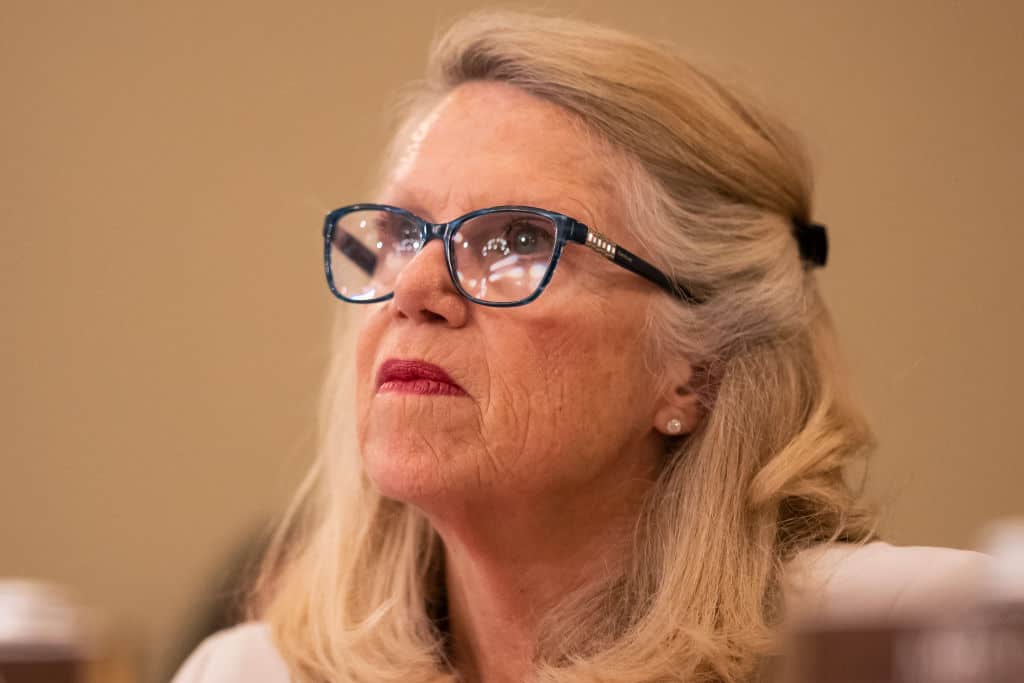Corporate Tax Rate: A Q&A with Rep. Carol Miller

The NAM recently talked to Rep. Carol Miller (R-WV), the head of the House Ways and Means Committee’s Supply Chain Tax Team, about how raising the corporate tax rate would “devastate” manufacturers, and what she and her colleagues in Congress are doing to keep it where it is.
NAM: Rep. Miller, Congress is facing a “Tax Armageddon” next year, as crucial provisions from 2017’s Tax Cuts and Jobs Act are set to expire. As the leader of the Ways and Means Supply Chain Tax Team, what is your focus moving into next year’s debate?
Miller: In all the meetings I have with Fortune 500 companies, small businesses and stakeholders, it’s clear that the corporate rate is top of mind for everyone. We are all concerned that if the corporate rate is raised from 21%, consumers will be hit the hardest by the rising prices of everyday goods and services. I know for capital-intensive industries like mining, having a consistent tax rate is essential. I’m also focused on how energy tax credits are implemented and making sure that the government isn’t picking winners and losers by their rulemaking. During the reauthorization, my Supply Chains Tax Team will be evaluating the various energy credits currently in law to see what works and what needs tweaking.
NAM: Prior to 2017, the United States’ corporate tax rate was 35%, the highest in the OECD and third-highest in the world. Tax reform lowered the rate to 21%, aligning the U.S. with the average rate elsewhere in the OECD. What does it mean for Congress to protect this lower rate, and what would happen if it goes up?
Rep. Miller: If the corporate rate goes up, it would be devastating for every American, from the small business owner to the CEO who is trying to expand their business. The corporate rate rising means there will be higher prices while the U.S. struggles to compete on the global scale. The best thing we can do in Congress is cement the corporate rate at 21%—or better yet, lower it even more—through the TCJA reauthorization in 2025.
NAM: In 2018, the year the 21% corporate rate took effect, manufacturers created more than 260,000 jobs (the best year for job creation in 21 years) and increased wages by 3% (the best year for wage growth in 15 years). What else is the Supply Chain Tax Team seeing on the impact of the corporate tax rate as they visit with businesses around the country?
Rep. Miller: We’ve only seen positive impact from the corporate rate being lowered. When the pandemic hit and the markets were falling due to uncertainty and instability, the lower corporate rate gave companies more flexibility to help their employees and keep costs low instead of paying the government sky-high taxes. The lower corporate rate protected jobs, helped produce more economic growth and makes all the difference for American families who are struggling with inflation. Furthermore, the lower rate led to higher federal revenues since companies were able to expand and invest so heavily following the passage of the Trump Tax Cuts.
NAM: Thank you for being a champion for manufacturers across the country. What can our members do to stay involved and be a resource for your tax team’s work?
Rep. Miller: Spread the word to those who might not know why the corporate rate is so important. The majority of Republicans are on the same page about this, but some think that in order to bring down inflation, you need to raise taxes on businesses. That is not true. Prices only go down if costs for companies go down, and the corporate rate is an effective way to do that while simultaneously boosting the American economy.
